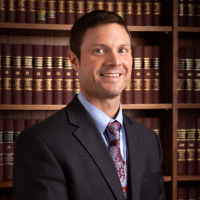Augusta Criminal Lawyer, Michigan
Sponsored Law Firm
-
 x
x

Click For More Info:
-
Law Office of Mark S. Guralnick
55 Madison Avenue 4th Floor Morristown, NJ 07960» view mapCriminal Defense Law Dedicated. Fearless. Successful.
Mark S. Guralnick and his legal team have helped clients throughout the USA and across the world by applying unparalleled dedication and hard work to each case.
800-399-8371
Wesley Johnson Todd
✓ VERIFIEDDUI-DWI, Criminal, Bankruptcy, Divorce & Family Law
Wesley Todd originally joined the firm as an intern in 2008. He has been a shareholder of the firm since 2020. He was born in Kalamazoo, Michigan and ... (more)
Matthew Xavier Hauser
✓ VERIFIEDCriminal, Felony, Landlord-Tenant, Child Custody
Ready to work with you to resolve your legal needs. Vandervoort, Christ & Fisher, P.C., is a general practice law firm that is dedicated to servin... (more)
FREE CONSULTATION
CONTACTDavid M. Stupak
Real Estate, Family Law, Divorce & Family Law, Criminal
Status: In Good Standing Licensed: 47 Years
Marianne E. Lebeuf
Accident & Injury, Criminal, Divorce & Family Law, Employment
Status: In Good Standing Licensed: 36 Years
Michael L. Lind
Litigation, Estate Planning, Family Law, Criminal
Status: In Good Standing Licensed: 24 Years
Kristen L. Getting
Federal Appellate Practice, Family Law, Divorce & Family Law, Criminal
Status: In Good Standing Licensed: 29 Years
Christopher M. Baldwin
DUI-DWI, Criminal, Insurance, Personal Injury
Status: In Good Standing Licensed: 11 Years
 Mark Guralnick Morristown, NJ
Mark Guralnick Morristown, NJ AboutLaw Office of Mark S. Guralnick
AboutLaw Office of Mark S. Guralnick Practice AreasExpertise
Practice AreasExpertise


